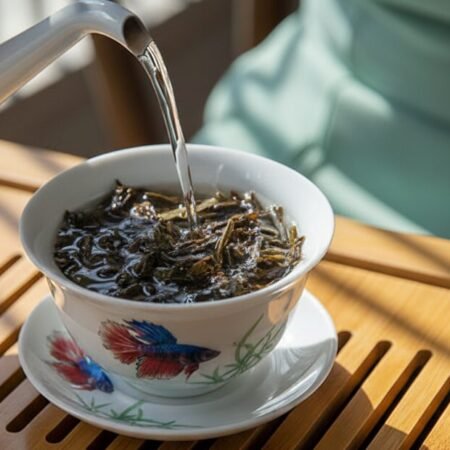
Browse Category
Brewing
Master the art and science of tea preparation to unlock each leaf’s full potential and flavor profile. Discover methods from around the world alongside essential variables that transform your tea experience.
34 Articles


Brew Tea with French Press: Easy Guide to Making Perfect Tea
October 27, 2025
6 Min Read

Tea Pre-Brewing: Enhance Your Brew with a Simple Rinse
October 19, 2025
5 Min Read

How to Brew Tea with a Kettle: A Simple Guide for Perfectly Brewed Tea
October 13, 2025
9 Min Read

How to Brew Tea Without a Strainer: Easy Loose Leaf Infusions
October 11, 2025
7 Min Read

How to Brew Tea with Cold Water: A Refreshing Guide to Cold Brew Iced Tea
October 9, 2025
10 Min Read

How to Brew Tea Bags: Tips for the Perfect Cup of Tea the Easy Way
October 7, 2025
11 Min Read

How to Brew Loose Leaf Tea Without an Infuser – Easy Steps for Making Delicious Tea
October 5, 2025
10 Min Read
Featured Articles
Most Delightful Newsletter
Get Our Master Tea Brewing Cheatsheet








